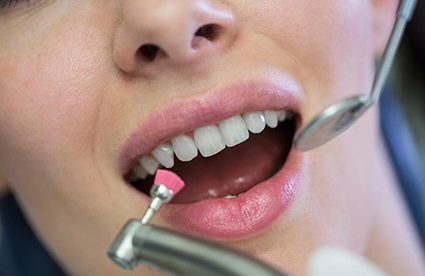What is teeth whitening?
Teeth whitening procedures involve lightening the colour of patients’ teeth, removing stains and any discolouration.
Teeth whitening procedures involve lightening the colour of patients’ teeth, removing stains and any discolouration.
Teeth whitening is not recommended for everyone, due to issues with gum and tooth sensitivity. You should always consult your dentist before going forward with teeth whitening procedures.
When assessing your teeth for whitening we will check the following things:
The main benefit of teeth whitening is the aesthetic quality it provides. For many people, having brighter teeth and a more beautiful smile can significantly increase confidence and self-esteem. Moreover, due to its vast popularity, teeth whitening is now very affordable for anyone who desires it. As well as this, teeth whitening rarely has any harmful side effects to the teeth or general health.

Teeth whitening is a relatively simple process. Whitening products contain bleach – either hydrogen peroxide or carbamine peroxide. These bleaches break the stains on the teeth down, which makes the colour less concentrated, therefore making your teeth brighter. A light is then used to enhance the whitening agent within the bleach.
Usually, the process of teeth whitening takes 30-90 minutes per session. The amount of sessions you undertake depends on the results you wish to see and how much whitening the teeth initially require. In addition to this, different types of stains respond differently to the treatment.
The length of the results depend on factors such as: smoking and drinking/eating foods that leave stains. These include red wine and cola. Depending on your lifestyle, you may have to whiten your teeth again every six months to a year.
Our dental professionals advise that you maintain good oral hygiene after the procedure – brushing at least twice a day with a fluoride based toothpaste and flossing regularly. We also recommend avoiding smoking, red wine, tea, coffee and anything else that could potentially leave stains on the teeth.